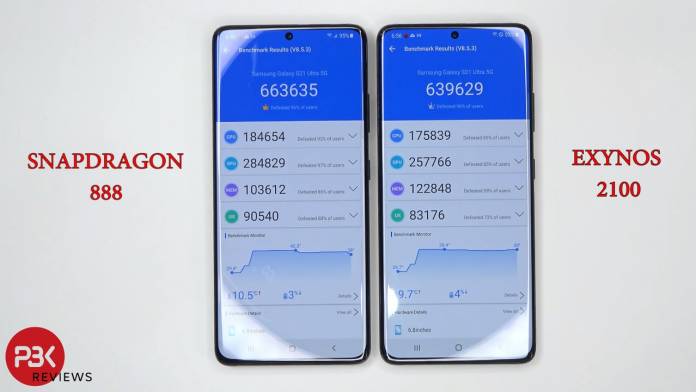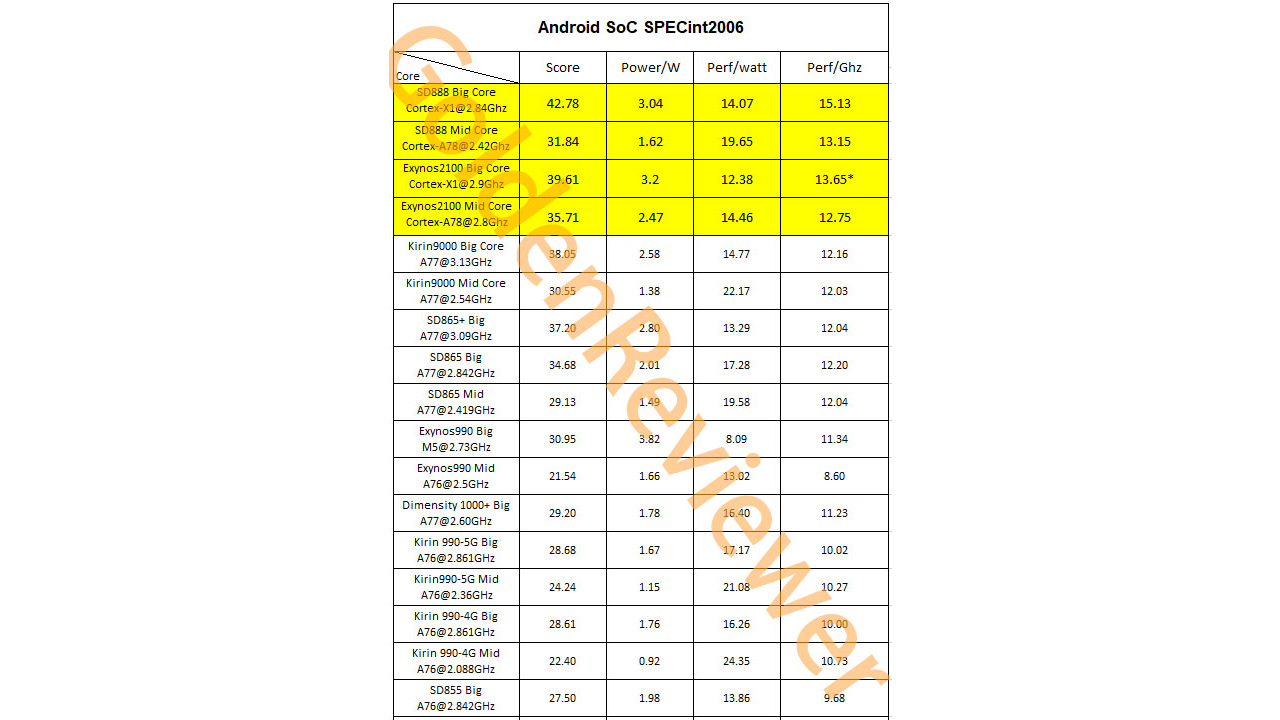
The trend of Samsung Galaxy flagship series coming in two different variants – one with Snapdragon and the other with Exynos continues this year with the Galaxy S21 series too. Users who got the Exynos 990 variant of the predecessor weren’t very pleased with the gaping difference when compared to Snapdragon 865, sparking a debate in the tech community. The Exynos 2100 has been a big step up from the last year’s flagship processor but can it beat Snapdragon 888 that has got more potent?
Exynos 990 had a battery fallback when compared to Snapdragon 865 for the Galaxy S20 series but with the latest benchmarking scores it looks like the gap this year has collapsed. In two separate tests by Golden Reviewer and PBKreviews some interesting revelations have been observed, as both the chipsets exhibit their set of advantages and disadvantages.
The Exynos 2100 seems to have managed the cooling better than the Snapdragon, whereas the latter has a little edge in pure performance. The intangible differences overall hint that there is not going to be any major advantage for the Snapdragon 888 powered Galaxy S21 Ultra variants as compared to the Exynos 2100 powered units.

As per Golden Reviewer the Exynos Cortex-X1 big core gets 7-percent lower score than the Cortex-X1 on the Snapdragon 888, resulting in a performance gain of 12-percent for the Qualcomm chipset. Whereas the 3x Cortex-A78 middle cores on Exynos 2100 have a 12-percent performance advantage over Snapdragon 888.
The advantage for Qualcomm’s chipset is the power consumption as Exynos 2100 has 26-percent less efficiency per watt. Still, it is much better than Exynos 990 with 22-percent performance and 34-percent efficiency gains.
As per PBKreviews in the benchmark tests, both the CPUs score over each other in various criteria’s. In the stress tests, the Exynos 2100 thermal management is superior to the Snapdragon 888 which gets a bit hot and even crashes once.
The Snapdragon on the other hand beats Exynos 2100 for the frames per second graphics benchmarks. The benchmark tests used in the video review are Geekbench 5, Antutu, and 3DMark to keep the tests as unbiased as possible.









